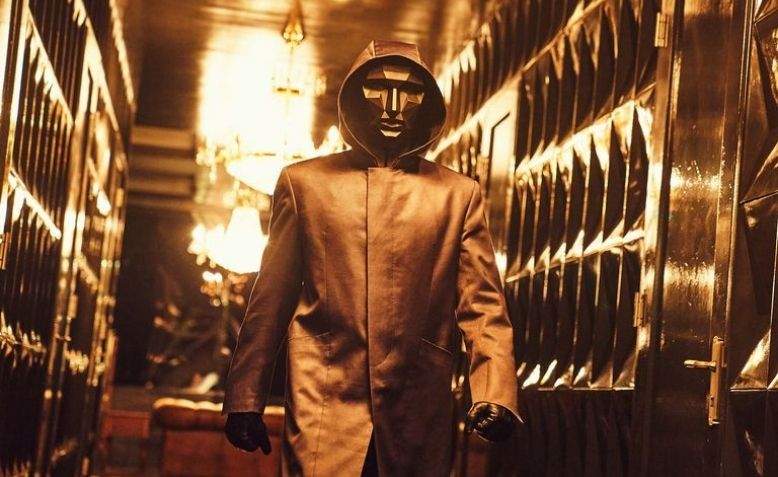 Still from Squid Game. Source: Netflix
Still from Squid Game. Source: Netflix
The brutal Squid Game is a huge hit. Lucy Nichols argues this is because people recognise the brutality in their everyday lives
The liberal commentariat doesn’t know what to say about Squid Game, Netflix’s newest hit show from Korean writer Hwang Dong-hyuk. The massively popular nine-part series is an obvious critique of capitalism and the way it manifests itself in South Korea, where the drama is set.
This obviously presents the liberal establishment with a massive problem; this is the biggest show Netflix has come out with all year. Everyone (really, everyone) is talking about it, and most of us have noticed that Squid Game is a less-than-subtle critique of capitalism’s effects on human nature and the human spirit. How can this programme be analysed without interacting with the anti-capitalist tone that runs through it? Put simply, it can’t.
There have been attempts to paint this as a criticism of human nature, or somewhat subversively as an attack on North Korea or China. Somewhere on blue-tick Twitter, there will be a neoliberal commentator arguing that the show’s purpose is to warn us of the danger of Jeremy Corbyn’s broadband communism.
There is certainly nuance in the show, which rather beautifully deals with morality, equality, and death. Squid Game explores several life-or-death competitions that leave the desperate characters traumatised but determined to keep playing for a chance at the cash prize awaiting them.
Workers and billionaires
Lee Jung-jae is marvellous in his portrayal of the main character, Seong Gi-hun. A down-and-out unemployed father, Gi-hun enters the competition out of fear that he will lose his daughter, whose mother is set to migrate to the US in search of better work. His disastrous addiction to gambling is mirrored in his all-or-nothing commitment to the squid game. The audience later learns that he was made destitute by the PTSD he suffered after watching police brutally kill a comrade on his picket line.
Other characters include a North Korean defector, played by Jung Hoyeon, who comes to realise that the South is not the utopia she imagined; a formerly successful businessman who has fallen from grace (Wi Ha-joon); Pakistani migrant (Anupam Tripathi); a policeman, and a mysterious old man who is not necessarily to be trusted (Oh Yeong-su). The cast is magnificent and largely comprised of actors incredibly well-known in South Korea.
There is a scattering of non-Korean characters, the ‘VIP’ spectators of the cruel game the poorer characters are forced to play for them. These ‘VIPs’ represent the mega-rich, hedonistic sponsors of the squid game who have been corrupted by wealth, and who are willing to indulge in any kind of debauchery, regardless of consequences. These characters are, for the most part, Americans.
Squid Game does of course have weaknesses; perhaps more could have been done to detail the characters’ respective backstories, or to explain the major plot twist that appears in one of the final episodes. The ending is also somewhat weak, though does easily leave room for another season of the show (fairly inevitable given its success).
Despite this, Squid Game is unmissable. It is entertaining and thought-provoking, gory and darkly funny. Perhaps most importantly, it is strangely relatable: we can all relate to worrying about money, even if we aren’t Korean, and have never considered entering a life-threatening lottery funded by billionaire sadists.
Squid Game is available now to watch on Netflix. Each episode is in Korean with subtitles.
Before you go
Counterfire is growing faster than ever before
We need to raise £20,000 as we are having to expand operations. We are moving to a bigger, better central office, upping our print run and distribution, buying a new printer, new computers and employing more staff.

